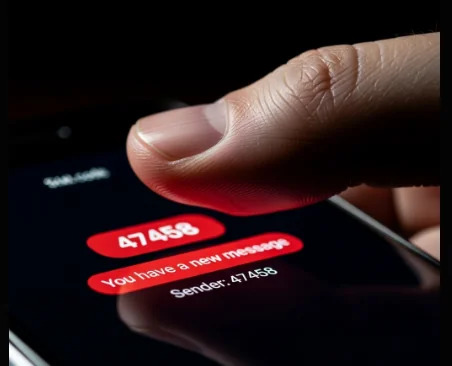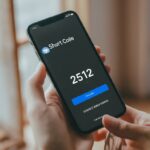The 47458 short code is a legitimate, five-digit number used by a variety of major businesses and online platforms. The message you receive from 47458 is typically a transactional alert, meaning it is sent in response to an action or attempted action on one of your online accounts.
Most often, the 47458 short code text contains a One-Time Passcode (OTP) for Two-Factor Authentication (2FA), a security layer designed to confirm your identity.
This article identifies the primary users of the 47458 short code, explains why the messages are being sent, and provides crucial security advice for handling codes you didn’t request.

-
Who is Behind the 47458 Short Code?
The 47458 short code is a shared short code—a number leased by a communications platform provider (like Twilio) and used by multiple client companies simultaneously.
The type of message usually falls into one of three critical categories:
| Primary Sender Type | Common Associated Companies | Purpose of the Text |
| Account Verification | Yahoo!, Google Voice, other tech accounts | Used to verify your phone number when creating a new account or resetting a password. |
| Security Alerts (2FA) | Various financial, social media, and online services | Delivering a time-sensitive, one-time passcode needed to complete a login from a new device or location. |
| Travel/Booking Updates | Travel agencies, airlines, booking services | Sending confirmation or update alerts related to flights, hotels, or reservations. |
Note on Yahoo! and Google Voice
User reports consistently link 47458 to Yahoo! for email and account verification, and to Google Voice for sending out verification codes when attempting to link a phone number to a new account.
- CRITICAL SECURITY ALERT: Unexpected Codes
The most serious scenario occurs when you receive a verification code from 47458 but were not actively trying to log into or reset any of your accounts.
If you receive an unsolicited code, someone else is attempting to access your account because they likely already have your password.
Immediate Action Steps:
- Do NOT Share the Code: Never give the code to anyone who calls or texts you asking for it. This is a common scam where criminals try to steal your phone number or access your accounts.
- Identify the Service: Check the text message content for keywords (e.g., “Your Yahoo! verification code is…”) to identify the compromised account.
- Change Your Password: Immediately go to that service’s official website (type the address manually, do not click any links in the text) and change your password to a strong, unique one.
- Enable App-Based 2FA: For maximum security, switch your 2FA setting for that account from SMS (text codes) to an Authenticator App (like Google Authenticator or Authy). App-based codes are far more secure and immune to SIM-swap fraud.
Low Concern: Wrong Number Mistake
If the text mentions a service you have never used, the most likely scenario is that someone else simply mistyped their phone number during the registration process. You can safely ignore and delete this message.
- How to Stop Texts from the 47458 Short Code
Since 47458 is primarily used for security, simply blocking the number is strongly discouraged, as it may lock you out of your own accounts.
- Opting Out of Marketing/Alerts
If you believe the messages from 47458 are promotional or annoying alerts (rather than 2FA codes), you can attempt the universal opt-out command:
- Reply to the message with the word: STOP
- Note: This command only works for bulk marketing or subscription lists. It will not stop verification codes, as those are sent on demand for security reasons.
- Reporting Unwanted Spam
If unwanted texts continue and you suspect a scam or unauthorized subscription:
- Forward the message to 7726 (SPAM). This allows your mobile carrier (AT&T, T-Mobile, Verizon) to investigate the sender and potentially block the campaign at the network level.
- Blocking the Number (Use with Caution)
If you are certain you do not use any service associated with 47458, you may block it on your device.
- iPhone: Tap the number in the message thread > Info (i) > Block this Caller.
- Android: Open the message > tap the three dots menu > Block & Report Spam.
Frequently Asked Questions (FAQ)
I never signed up for anything. Why did I get a 47458 text?
You are likely receiving a verification code because:
- Someone else mistyped your number when signing up for a service like Yahoo! or Google Voice.
- Someone has your password and is trying to access one of your accounts protected by 2FA.
Can I block the 47458 code?
You can block it on your device, but it is not recommended if you use Yahoo! or any other service that uses this code for 2FA. If you block it, you will be unable to log into those services should you ever need to reset your password or log in from a new computer.
Are short codes used for travel updates safe?
Yes. Companies often use short codes to send automated travel updates (flight delays, gate changes, booking confirmations) because they are reliable for time-sensitive alerts. Always verify that the company name in the text matches your booking, and avoid clicking any links that ask for login credentials.


